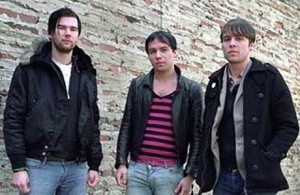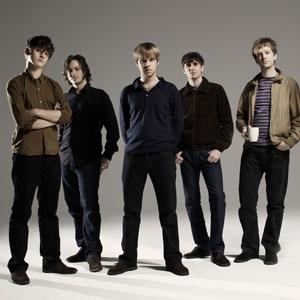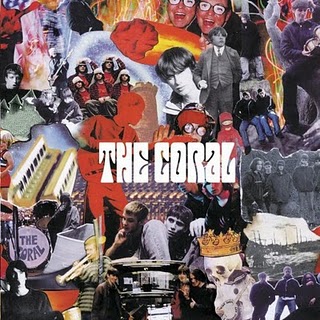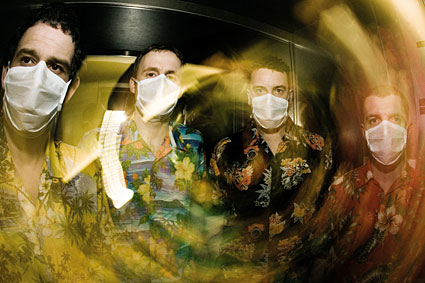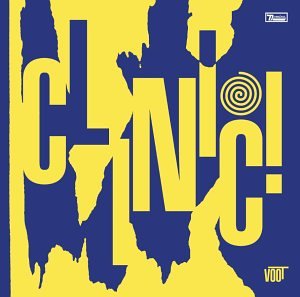 After The Prodigy helped manufacture post-Nirvana rave culture for Britain’s underground masses, a swarm of inventive laptop musicians sprung up and found fame in England, hoisting Fatboy Slim and Chemical Brothers atop the next ‘big beat generation.’ Then Daft Punk absorbed these influences and gave a metallic sheen to the heavy groove line, ushering in the new millennium for hotshot modern beat-masters like LCD Soundsystem, Hot Chip, and the more rock-oriented Pendulum.
After The Prodigy helped manufacture post-Nirvana rave culture for Britain’s underground masses, a swarm of inventive laptop musicians sprung up and found fame in England, hoisting Fatboy Slim and Chemical Brothers atop the next ‘big beat generation.’ Then Daft Punk absorbed these influences and gave a metallic sheen to the heavy groove line, ushering in the new millennium for hotshot modern beat-masters like LCD Soundsystem, Hot Chip, and the more rock-oriented Pendulum.
Leaving Perth, Australia’s early drum and bass alliance to relocate in the United Kingdom during 2003, Pendulum have slowly, but surely, taken over the current club scene and beyond with their impetuously infectious techno-rock concoctions. Led by sturdy original crew, Rob Squire and Gareth Mc Grillen (from unheralded Tool/ Deftones-styled Aussie rockers, Xygen), plus seasoned DJ, Paul Harding, Pendulum expanded their lineup over time, magnifying the enthusiastic electro-percussive soundscape twofold since formative ’05 debut, Hold Your Colour, and its rockier ‘08 follow-up, In Silico.
Full of confidence, swagger, and stacked electronic gadgetry, they’ve now made a perfectly bombastic 66-minute nightclub masterpiece recalculating, redirecting, and re-calcifying 30 years of decadent post-punk discotheque maneuvers for a joyous ecstasy-laced journey beyond the galaxies. Truly, the magnanimous Immersion features something for everyone to get into. Placing thrillingly overwrought mantras inside flashy nu-metal guitar frays, monst0rous dance floor romps, and cybernetic phase-shifting burbles, its plush interior design supports a deliriously cryptic water theme.
Commencing orchestral march, “Genesis,” opens the mammoth set, drifting directly into engrossing genre-bending anthem, “Salt In The Wounds,” a first-rate state-of-the-art rock-blocked techno-Industrial instrumental just about as fascinatingly phantasmagorical as Hollywood’s greatest espionage capers. Moving through a streamlined synth-drum pulse with furious adrenaline, this phosphorescent seven-minute opus shoots gooey electronic taser spurts and spritz-y laser gun squirts into an insanely megalomaniacal potpourri where Frankie Goes To Hollywood-meets-“Frankenstein” at an intergalactic Star Wars convention.
 Without sounding guardedly superficial, Pendulum oft-times enjoys salvaging ‘80s musical vagaries from vinyl wreckage throughout Immersion, forging ahead with one foot in the past on “Watercolour,” which could be mistaken for posh arena-ready prog-rock by overblown supergroup, Asia, despite its utterly techno-derived rhythmic crush. In a similar vein, “Crush” revisits not only Asia, but also Europe and Damn Yankees arena rock, reaching deeper emotional heights and gaining wider mainstream access than ‘Watercolour” (an instant ’09 Brit hit single).
Without sounding guardedly superficial, Pendulum oft-times enjoys salvaging ‘80s musical vagaries from vinyl wreckage throughout Immersion, forging ahead with one foot in the past on “Watercolour,” which could be mistaken for posh arena-ready prog-rock by overblown supergroup, Asia, despite its utterly techno-derived rhythmic crush. In a similar vein, “Crush” revisits not only Asia, but also Europe and Damn Yankees arena rock, reaching deeper emotional heights and gaining wider mainstream access than ‘Watercolour” (an instant ’09 Brit hit single).
Though “Witchcraft” and “The Island – Pt. 1 Dawn” nearly overload the cheesy art-rock tendencies, mesmerizing mantra “The Island Pt. II Dusk” fries the brain with piercing synth-string spikes sunk into a ceaselessly overwhelming bass-drum backbeat that boggles the mind devising trippy modulated oscillations and lofty robotic machinations. Likewise, “The Vulture” bites off a few syncopated rhythm ideas from high-tech disco producer, Giorgio Moroder, with jubilant results.
Pendulum also got the opportunity to employ a few varied musicians that have gained their respect over the years. Prodigy’s Liam Howlett, a veritable techno-rock mentor, provides profuse pyrotechnic percussion blurts to floor-shaking rattler, “Immunize.” Swedish death metal band, In Flames, fling a guitar-trebled bass rumble at corrosive gut-wrenching changeup, “Self Vs. Self.” Purcupine Tree’s Steven Wilson brings a hint of psychedelic intrigue to symphonic piano-based space-rock illumination, “The Fountain.”
Not to be outdone, the dauntingly rancorous assault of “Comprachicos” fucks you like Nine Inch Nail’s “Animal,” ultimately spiraling out of control as sizzling guitar riffs and heated synthesizer jabs battle it out until the guys vindictively scream ‘throw it away/ ‘cause I got no patience.’
It may’ve taken two years to assemble Immersion, but Pendulum definitely realized their enormous potential. Every track’s been handled with grandiose Epicurean care and each cluttered performance is given utmost conviction.
I spoke to Pendulum’s Rob Swire mid-January 2011 via phone.
 Did you plan on making Immersion into a gargantuan epic during the planning stages?
Did you plan on making Immersion into a gargantuan epic during the planning stages?
ROB SWIRE: No. It did take awhile though. We wrote it in the space of two years on and off bus tours. But we really cracked down on it in the last five months of making the record.
There was a subconscious water theme running through the lyrics. Then, we were going back into the studio and it felt a bit like being immersed in itself. So it came naturally.
It definitely got bigger. I don’t think we ever noticed because when you’re in the middle of it you’re not conscious of it developing. Since we didn’t see our families for the better part of two years, the show got really pumped up.
There was a small drum and bass club scene in Perth. We were just trying to make tracks for local producers that would get airplay at local clubs. That’s how we met Paul (Harding), our DJ. We were supposed to play a live set that day, but one of our computers went down so we asked him to set up the decks and play our tracks.
I think it’s the sound of Pendulum knowing what they’re doing now. To a large extent, the first two were good, but we were experimenting. We didn’t have a clear conscious idea about that the music we were making or the sound we were after. We got to a point where we were happy enough to be called a band then. On Immersion, we knew what we were doing and understood what album we wanted to make.
It’s funny. Over here in England, you could get a lot of stuff on the radio, especially if it’s electronic.
Actually, I’m a big prog fan – Yes and King Crimson. But more than that, Porcupine Tree, which started in 1997. I’ve listened to their second album a lot and picked up on them. I’d never really been a big fan of Pink Floyd until I worked myself backwards to older bands. We like Porcupine Tree so much we actually asked Steve Wilson to work with us on “The Fountain.”
We can’t play a show without doing it or we’ll hear about it online. General fans in England love “Watercolour” and “Witchcraft.” But in the States, “Crush” is the most liked. And our cult fans have also fell in love with that.
We were trying to make something with a Nine Inch Nails intro to begin with. The word comprachicos (coined by novelist Victor Hugo in The Man Who Laughs) loosely means child molding. It was born out of a Spanish fable that had guys who’d take children and put them into these forcible constraints that would deform their bodies as they grew and keep them as ornaments.
Yeah. We’d love to do it. We get envious when we hear Trent Reznor doing The Social Network or Daft Punk on Tron.
We’re working on the next album currently. But we’re not using those songs in our shows. We do have some stuff lined up for the States tour, though. It’s getting very ‘in the moment.’ We’re not trying to spend too much time on things because we’re trying to be less affectionate and bring a sort of punk edge to it. We want to keep it visceral and possibly contrast Immersion with shorter songs.
